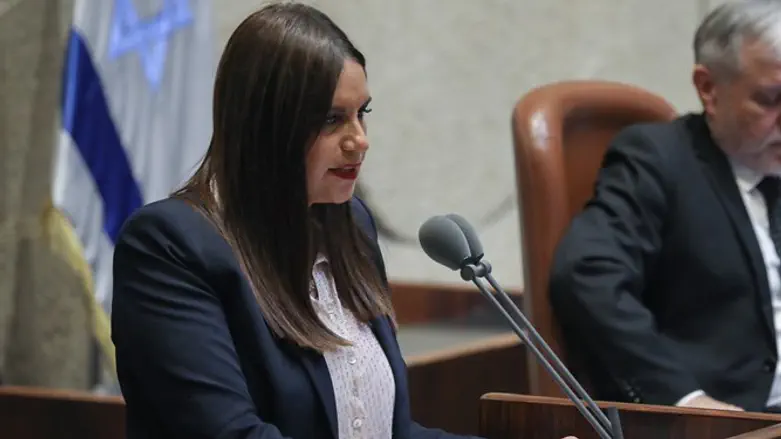
Attorney Chaya Tamar Harpaz criticized the bill approved by the Knesset Ministerial Committee to curb the phenomenon of economic violence within the family.
The proposal, led by Likud MK Keren Barak, sees economic violence as physical violence for all intents and purposes and seeks to allow a claim for compensation from "victims of economic violence".
Advocate Harpaz sees the bill as interference in the private family unit and also a distortion of the term "violence" as part of a new discourse: "Violence is necessarily physical," she stresses.
She says, "these two patterns of behavior, both the interference in the family unit and the 'new way of talking' characterize 'progressivism' that the feminist movement is part of as it constantly strives to regiment the private space and be a kind of 'Big Brother'." Harpaz compares the interference in the life of the individual in the bill to a previous law requiring every divorcing couple to undergo mediation first "instead of leaving this decision to their own discretion".
"The consequences of this law will be bad. Firstly because when one spouse tends to be careless with money, many times the other spouse stops and balances it. Now that balance will be upset and more homes may get into difficult economic situations. In addition, it's an issue that won't arise when the couple lives in harmony, but when a breakup occurs between them and they divorce. In such a situation, the issue of 'economic violence' will become another issue of litigation and reciprocal attacks in divorce proceedings that are already saturated with anger and tension."
Advocate Tamar Harpaz does not accept the claim that the bill maintains equality between the genders: "Although the bill is worded as if it's aimed at both genders, in practice it's perceived as one that comes to protect women, and evidenced in all interviews and articles published around this bill that speak of woman as victims.
This is not the first time that similar bills automatically catalog men as violent. Prof. Zeev Weinstock of the University of Haifa, one of the world's leading experts on violence between spouses, reported to a Knesset committee a study that determined that the women who are most at risk of being harmed by men are those who themselves engage in physical violence against men.
Despite the data, systemic treatment in cases of violence between spouses refers to women automatically as victims of violence, while men are typically labeled as perpetrators of violence, "even in cases where this is not true at all. Even in cases where it is the opposite. Even in cases where it is mutual."
Adv. Harpaz: "The bill, if passed, will be activated in situations of divorce, which is a stage when men are the group finding itself discriminated against many times, partly due to the tendency of family courts to favor women and rule against men. Therefore, this bill does not contribute to balance, but vice versa. It only further weakens the balance because it provides another tool to hurt men."
In this context, Adv. Tamar Harpaz adds that “alimony payments are among the only payments that the system doesn't take into account during the coronavirus period. Fathers are forced to continue to pay full alimony, even if they were fired from their jobs or sent on unpaid leave. The courts and tribunals don't accept the claim that the male income has decreased because of coronavirus. I know a father whose children are with him because the mother is in isolation and he's still required to pay full alimony. It's interesting that this exploitation interests no one."